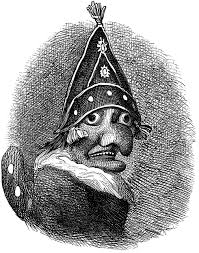Sunday Morning / January 29, 2023
Jacinda Ardern abruptly resigned as New Zealand's prime minister, turning the reins of power over to Chris Hipkins who was sworn in this week. “I know what this job takes, and I no longer have enough in the tank to do it justice. It's that simple.”
Ardern, who led her party to a landslide victory in the 2020 general election, revealed along the campaign trail that she suffers from Impostor Syndrome: a unique psychological pattern of self-doubt in her own skills, talents or accomplishments. “Some of the people I admire the most are self-consciousness,” says Ardern, who at 37 became the youngest leader in the world in 2017. “They have a gnawing lack of confidence.”
Confidence, however, isn’t the real story. People who suffer from Impostor Syndrome have a persistent, internalized, and debilitating fear of being exposed as a fraud.
The Intellectual Phony
First appearing in an article entitled, "The Impostor Phenomenon in High Achieving Women” in 1978, Pauline Clance and Suzanne Imes identified the impostor phenomenon in high achieving women in professional industries experiencing "an internal and persistent emotion of intellectual phoniness."
Characterized by a persistent fear of being exposed as a fraud, the researches surveyed over 1000 women recognized for their professional excellence by their own colleagues, and who displayed academic achievement through educational degrees and standardized testing scores. Despite consistent external validations, each lacked an internal acknowledgement of their external accomplishments.
While general anxiety, frustration and depression were the manifestations of the fear of being exposed as a fraud, Clance and Imes quickly noticed a catalyst called cultural bias: the phenomenon of internalizing one’s experience by standards imposed by culture.
Becoming
When Michelle Obama was required to meet with a college counselor during her senior year at Whitney M. Young High School, a Chicago magnet school, her sights were set on the same Ivy League school her brother was attending.
“I'm not sure that you're Princeton material,” the counselor said.
“But I wasn't going to let one person's opinion dislodge everything I thought I knew about myself," Obama recalls, “so instead I just buckled down and got back to work."
However, when Michelle Robinson entered Princeton University in 1981 she was confronted by the reality of cultural bias the counselor had warned. Since 1746, Princeton University was a restricted all male institution of higher education with a reputation of being an elitist Old Boys school. In 1969, Princeton became co-educational, admitting eight female transfer students. Obama remembers;
I tried not to feel intimidated when classroom conversation was dominated by male students, which it often was. Hearing them, I realized that they weren't at all smarter than the rest of us. They were simply emboldened, floating on an ancient tide of superiority, buoyed by the fact that history had never told them anything different.

Former First Lady Michelle Obama, 2021
In her final official remarks as first lady, Michelle Obama did her bit to reverse that cultural bias by praising the nation’s school counselors as “education heroes;” the ensigns to legions of young people finding their way from uncertainty to prosperous, confident futures.
"I still have a little impostor syndrome, it never goes away,” Obama admits, “so I say to young people every day this country belongs to you, to all of you, from every background and walk of life.”
Culture Wars
Asked if she ever feels like an impostor, “Like many women in senior positions, yes, I absolutely do,” says Nicola Sturgeon, the First Minister of Scotland. “Do I deserve this?”
Just last week, Sturgeon was accused by the Conservative government of “stoking a culture war” when invoking section 35 of the Scotland Act. She claims, “UK ministers are thwarting a purely administrative reform that benefits a marginalized minority to pick an illegitimate constitutional fight.”
An advocate of the Equality Act — an act which makes it unlawful to discriminate, harass, victimize or carry out any other unlawful act because of a protected characteristic — the First Minister warns, “it’s difficult for women to adopt an approach which isn’t criticized by other women, too. It’s a double whammy!”
“We’re criticized for not only for being women,” Sturgeon says, “but for being weak if we adopt a feminine style. I don't think there is a woman alive, particularly working-class women, who don't experience that at some point in their lives.”
Riding the Wave
While First Wave feminism of the 19th century focused on suffrage, overturning legal obstacles to gender inequality (voting rights, property rights), Second Wave feminism broadened the debate to include women’s civil rights. “The Feminine Mystique,” widely credited with sparking second-wave feminism in 1963, questioned cultural norms like domesticity and motherhood with conversation about contraception, reproductive rights, careers.

Nicola Sturgeon 2022
Thirty years on, Anita Hill was testifying to an all-male, all-white Senate Judiciary Committee that U.S. Supreme Court nominee Clarence Thomas had sexually harassed her in the workplace, kicking off what Rebecca Walker in Ms. Magazine called, “Becoming the Third Wave.” The Fourth and final wave begins in 2012 with Harvey Weinstein, MeToo, and internet activism.
While each of the four movements critique patriarchal, male-dominated institutions and cultural practices throughout society, there’s precious little attention paid to what power should be used for, once it’s won, or what values we want to see governing our world.
It’s worth remembering that it wasn't America's rampant misogyny that doomed Hillary Clinton. Rightly or wrongly, when Donald Trump won the white female majority in 2016 it was simply because the white female majority had decided a vote for Donald Trump was in their self-interest.
Characterizing the Great Depression, U.S. President Franklin Delano Roosevelt observed, "self interests are the magnificent impostors of virtue.”
For the People
Ardern plans to stay on as a Member of Parliament until April to avoid triggering a special election ahead of the nation’s general election in October. She said she was prepared for her new, relatively obscure role.
“I’m ready to be lots of things,” Ardern told reporters. “I’m ready to be a backbench MP. I’m ready to be a sister. I’m ready to be a mom.”








